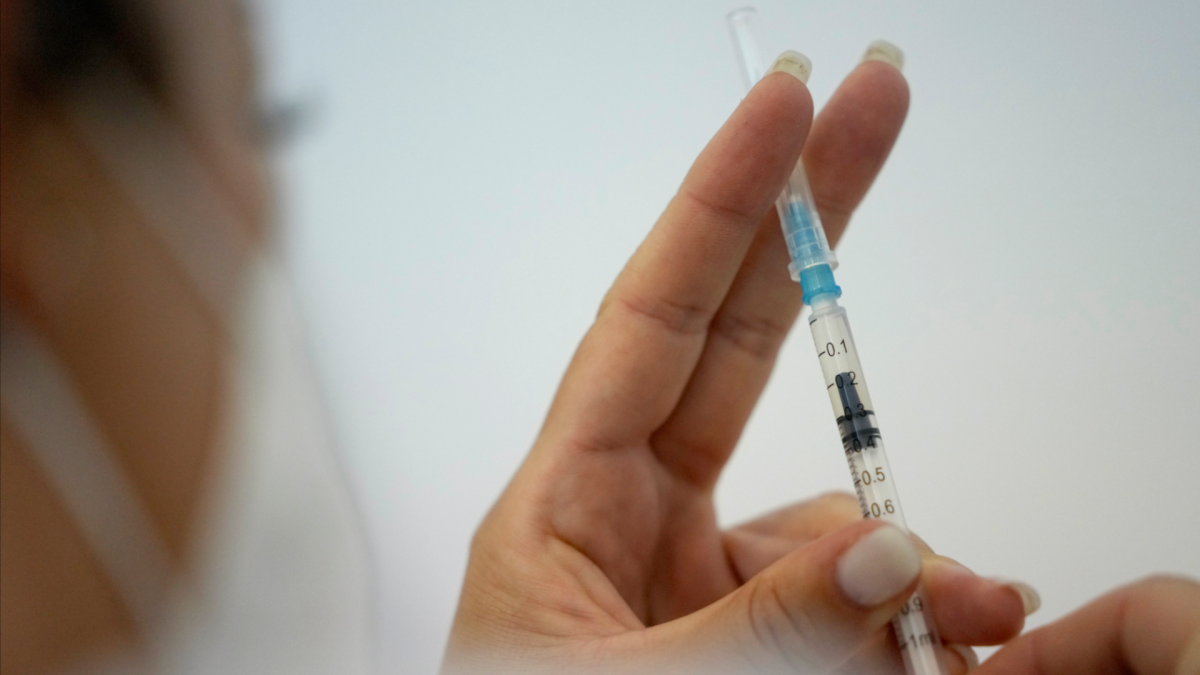Front-line public servants in Manitoba who aren’t fully vaccinated will soon need to provide a negative COVID-19 test before showing up for work.

Regular testing for front-line workers who have direct and ongoing or prolonged contact with vulnerable Manitobans will begin Oct. 18, under new public health orders announced Friday.
“Nothing is more important than the health and safety of vulnerable Manitobans during this fourth COVID-19 wave,” said Manitoba Health Minister Audrey Gordon in a release.
“Ensuring public-sector workers that provide valuable public services like health care and education services are routinely tested for COVID-19 or fully immunized will help ensure the safety of their workplace and the people they serve.”

Affected public-sector employees include:
- health-care personnel;
- school personnel;
- licensed child-care facility personnel;
- public servants who regular have direct and ongoing or prolonged direct contact with
vulnerable populations; - child and family service personnel;
- funded agency personnel in direct contact with vulnerable populations;
- home-care workers; and
- paramedics.
Under the public health order, designated public-sector workplaces will be required to make rapid testing available on-site for unvaccinated employees and officials estimated the move may affect some 20,000 public-sector workers who are not fully vaccinated.
They say rapid antigen tests — which can bring results within 15 minutes — will be used, and employees will need to provide proof of a negative test within 48 hours before starting a shift.

Get weekly health news
Dr. Brent Roussin, Manitoba’s chief provincial health officer, said that could mean unvaccinated or partially vaccinated employees will need to be tested as many as three times a week, depending on their work schedules.
Roussin said if a rapid test provides a positive result for COVID-19, affected employees must report to a provincial testing facility to take a test and self-isolate until they receive their results.
For now, officials say the province will be covering the costs of the rapid tests.

The public health order does not apply to the private sector or the not-for-profit sector, although the province said it is working with the Winnipeg Chamber of Commerce to provide rapid tests for businesses that chose to enact their own vaccination or testing requirements.
Roussin said once a public-sector employee is fully vaccinated against COVID-19 and provides proof of vaccination, they will no longer be required to take part in the regular testing.
“Vaccines are the best protection against COVID-19, for individuals and for others, and I want to thank all Manitoba public-sector workers for their ongoing efforts to protect vulnerable Manitobans and their colleagues,” Roussin said in a release.
“The best protection against this fourth COVID-19 wave is to get vaccinated, get tested and follow all public health orders designed to keep you, your family and your community safe.”
Questions about COVID-19? Here are some things you need to know:
Symptoms can include fever, cough and difficulty breathing — very similar to a cold or flu. Some people can develop a more severe illness. People most at risk of this include older adults and people with severe chronic medical conditions like heart, lung or kidney disease. If you develop symptoms, contact public health authorities.
To prevent the virus from spreading, experts recommend frequent handwashing and coughing into your sleeve. They also recommend minimizing contact with others, staying home as much as possible and maintaining a distance of two metres from other people if you go out. In situations where you can’t keep a safe distance from others, public health officials recommend the use of a non-medical face mask or covering to prevent spreading the respiratory droplets that can carry the virus. In some provinces and municipalities across the country, masks or face coverings are now mandatory in indoor public spaces.
For full COVID-19 coverage from Global News, visit our coronavirus page.








Comments